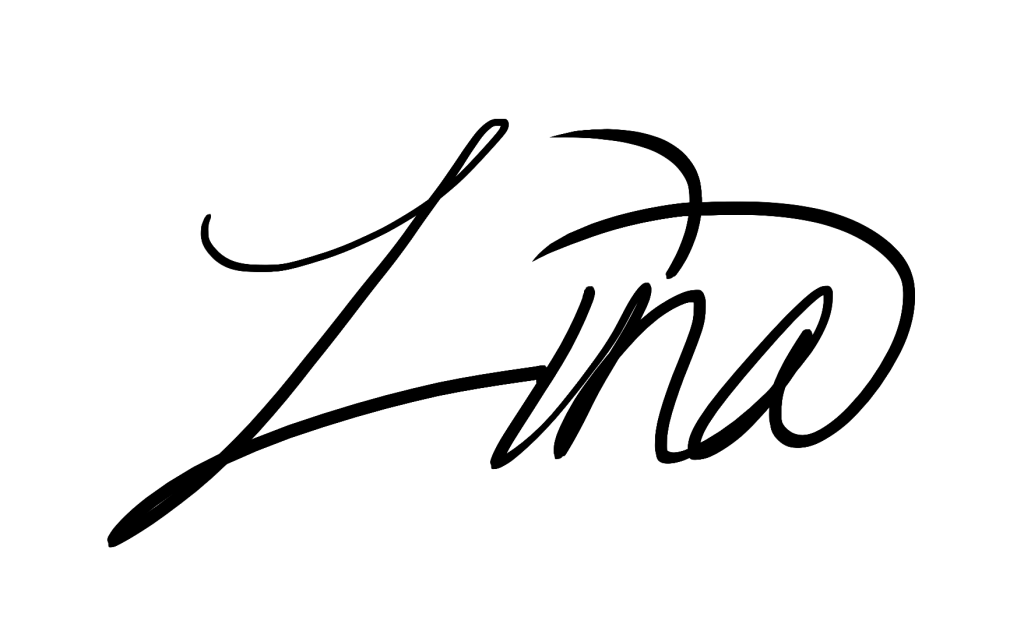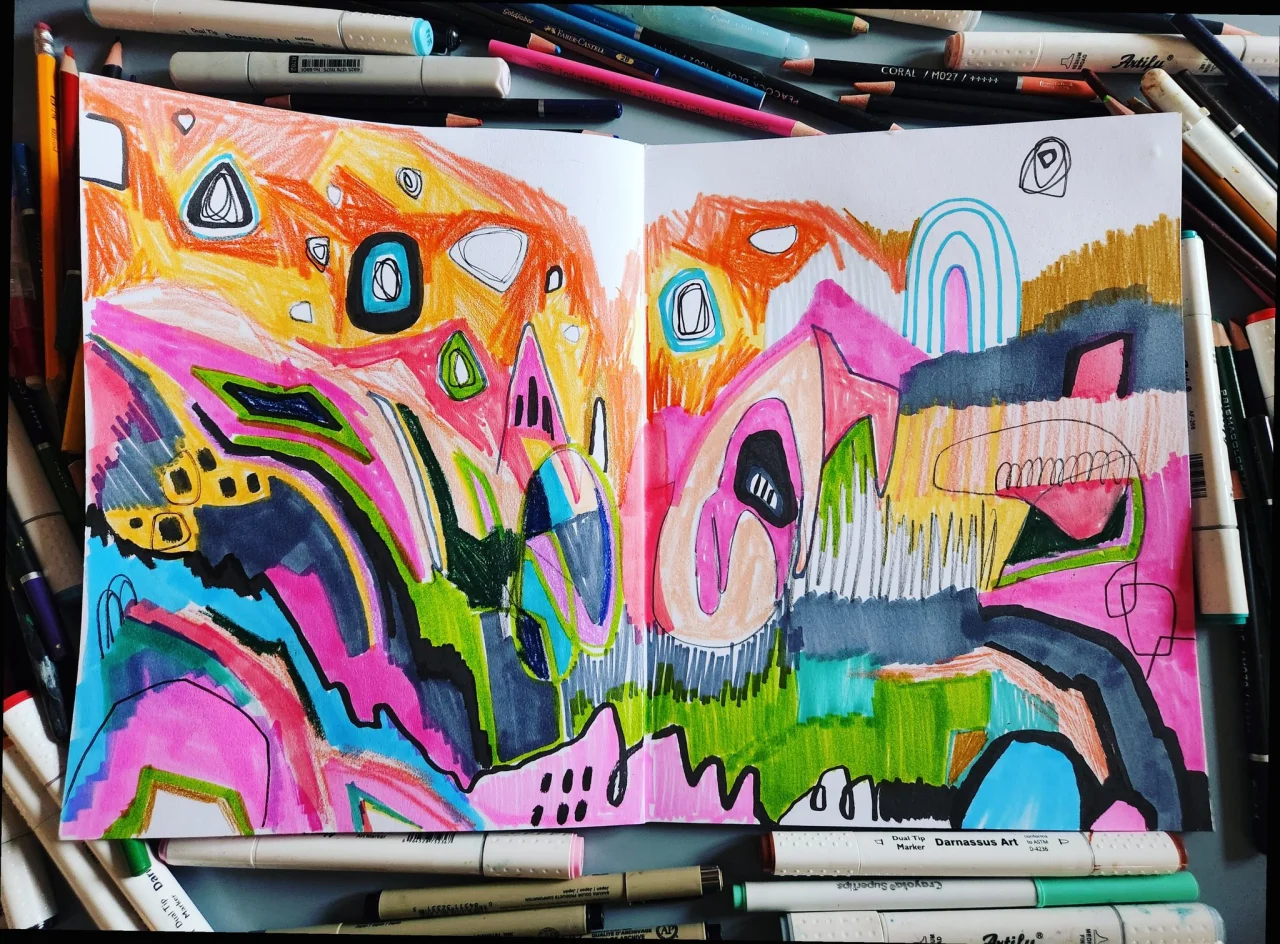I get a lot of questions about intuitive art, both online and in the classroom. Most of the time I have a prompt response that satisfies the question. Other times I give a half-hearted response because I need to think over it some more. Intuitive art is weird like that. Some days I have it figured out and the next day I have no idea what any of it means.
Now that I’ve had some time to think them through I figured I’d come on here and answer a few of these questions that I didn’t quite have the answer for at the time. I also have a few extra questions in there that were easier to respond to, but I felt deserved to be shared with you here.
So let’s get to it shall we?

FAQ One: Are you an art therapist?
I am not. While I do have a BA degree in Psychology with a minor in Sociology, that’s as far as I got in my education. I do not have a masters or an art therapy license, nor do I claim that what I’m teaching/sharing is therapy. Meditation? Sure. Soul-Searching? Yes. Play? Absolutely. But a licensed therapy practice? No way.
As someone who believes strongly in therapy, whether that’s Cognitive-Behavioral Therapy, music therapy, hypnotherapy, etc. I cannot even remotely claim to have the answers to life’s greatest mental mysteries. If you are seeking therapy, or help in any way, I strongly encourage you to talk to your primary care practitioner and he/she will guide you in the right direction.
All that said, I am a part of the Art Heals program here in our city, which provides art classes to those who may need an extra outlet for their expression, such as cancer survivors, recovering addicts, and troubled teens. However, once again, I never claim that the lessons I’m teaching are a form of therapy. Rather a way to find yourself through scribbling, a way to visualize your emotions/thoughts that may be tucked away in the subconscious.
To put it simply, I teach art.

FAQ Two: Do you focus on your emotions when you work?
This question was tricky for me to answer—and still is. If you listened to the last blog post or podcast episode you’ll remember I talked about my odd relationship with emotions, so it was hard for me to interpret what this question even meant. Do I feel physical symptoms of emotions while working? Do I focus on whether my heart hurts or my teeth clench? No. But my work is very emotional and comes from somewhere inside that most of the time is hidden behind a wall. Art allows me to express my emotions in a safe and non-judgmental way.
So do I focus on my emotions when I work? No. Because I’m more or less focused on the actual play of scribbling and painting and smearing and splashing. But is my work fueled by emotion? Yes. Yes definitely.

FAQ Three: As an intuitive artist, is it okay for me to seek out shapes and patterns that I might use in future works?
Yes. A thousand times yes. Whether we’re intuitive artists or working from real life, we are very much influenced by our surroundings and what we’re taking in through the five senses. This includes certain patterns, shapes, colors, melodies, words on a page, and more. Let that inspire you! You can definitely draw a tree when you’re working intuitively. The only difference is that you improvise those fractals instead of plan ahead.
In fact, I created a Pinterest solely for myself, my students, and anyone else who has embarked on their own scribble journey, where I’ve pinned boards with themes such as “natural patterns” and “colorful art.”

FAQ Four: When working, do you find that you prefer some shapes more than others?
Of course! This is also a good sign that you’re doing it right. Because not only are you getting meditative with repetition, and kindling something within yourself, but you’re also forming your own self awareness about these shapes. You’ve noticed them. You may notice that you like squares a lot lately, or speckled dots made with a tiny ink pen. The next step is to ponder why that is. What do the shapes mean to you? Are you drawing them more often after a certain activity? While listening to a particular song? After meeting the same friend for coffee?
One way to help you figure out the mystery is to take notes after each scribble. Write down what shows you’ve been watching, what songs you’ve been listening to, what your mood has been like, who you saw that day, etc. Anything that would influence your work. You may start to notice a correlation between your day and your shapes.

FAQ Five: Did you study art in college?
Nope. Art has just always been something I enjoy doing. Everything you see on my social media/website/this blog is self- taught. Which shows that you don’t need talent or a degree to do something like play an instrument or paint a landscape. I am a huge believer in skill-building. If I had a dollar for every time someone said “I wish I could draw” I wouldn’t have to work anymore. My response is always the same:
“So draw.”
You want to do something? Go do it. If the excuses start right away as to why you can’t do something (time, money, etc.) then I hate to be the bearer of bad news: you don’t really want to. You just like the idea of having a certain skill. So go find the skill that really gets you excited, the one that you’d do no matter how little time, money, energy you have.
Talent is not a myth, unfortunately. There are people out there who have a genius quality to certain skills that they were just born with. However, these people are usually bored with said skills because they have nothing left to work toward. There’s nothing left to learn. I hear all the time: “my child is an amazingly talented artist but he wants nothing to do with art.” That’s because he’s progressed as much as he cares to and has moved on.
The problem with our society—at least here in the USA—is that we’re taught to focus on our talents, what we’re good at, to determine what we’re going to be when we “grow up.” As if growing up is the main goal of life. All we focus on is how said talents can benefit us, whether it will provide any monetary value. But we’re not just good at one thing, and not everyone wants to be an artist, even if they’re really, really good at it.
Self-taught individuals have always been the most determined people I’ve ever met. They started with an empty canvas, so to speak, and had to build their skills from the ground up. They may be good at a lot of things, may even be better than art at a lot of things, but art is not just a skill to them. It’s who they are.
So who are you? And what would you grind yourself down to the brink of exhaustion to have? What were you doing when the pandemic closed it all down? Who were you when you weren’t allowed to be a grown-up?
That. Go do that.
Until next time, may your skills be valued and your questions be answered.

